Many composers have been drawn to Emily Dickinson (1830-1886), perhaps without realizing that Dickinson’s own early years were full of music, her musical activities having preceded and informed her later dedication to poetry. Like most young women of the middle and upper classes in Antebellum America, Dickinson studied piano and voice. The family parlor was the nexus of lively musical activity, and music was often a topic in Dickinson’s correspondence. On August 3, 1845, fourteen-year-old Emily wrote to her friend Abiah Root: “Are you practising now you are at home—I hope you are, for if you are not you would be likely to forget what you have learnt. I want very much to hear you play … I have the same Instruction book that you have, Bertini, [Progressive and Complete Method for the Piano] and I am getting along in it very well. Aunt Selby [her teacher] says she shant let me have many tunes now for she wants I should get over in the book a good ways first … I have been learning several beautiful pieces lately. “The Grave of Bonaparte” is one. “Lancers Quick Step”—“Wood up,” and “Maiden Weep no More,” which is a sweet little song. I wish much to see you and hear you play.”
Tracklist
Please note that the below previews are loaded as 44.1 kHz / 16 bit.Total time: 00:51:57
Additional information
| Label | |
|---|---|
| SKU | PTC5186634 |
| Qualities | |
| Channels | 2ch Stereo, 5 Channel Surround Sound, 2ch Stereo & 5ch Surround |
| Artists | |
| Composers | |
| Genres | |
| Recording Location | Friche La Belle de Mai, Marseille |
| Recording Type & Bit Rate | DSD 64 |
| Recording Software | Pyramix, Merging Technologies |
| Recording Engineer | Jean-Marie Geijsen, Karel Bruggeman |
| Producer | Job Maarse |
| Notes | NativeDSD selectively creates higher DSD bitrates of label's releases using two methods (Merging Technologies Album Publishing and Singnalyst HQPlayer Pro), depending on the original edited master source. In order to understand the processes, a bit of background is appropriate. NativeDSD sells only recordings that were originally recorded in DSD or DXD (352.8KHz PCM). The overwhelming majority of these recordings were edited and post processed in DXD, then converted (modulated) into DSD deliverable bit rates. NativeDSD acquires the label's original DXD edited master, and using Merging Technologies Album Publishing, creates a first generation DSD64, DSD128, and DSD256, as well as a DXD FLAC deliverable. Additionally, on selected recordings, a 32bit PCM WAV file is extracted (the DXD PCM FLAC is 24 bits by format definition), and uses it to modulate a DSD512 using HQPlayer Pro.The exception to the above are the few label recordings (Yarlung, Eudora, Just Listen etc.) that record in DSD, and do no PCM post processing mixing, level balancing, EQ etc. That's doable by restricting post processing to just editing, where only the edit transition interval (typically 100ms or less) is PCM converted, leaving the DSD music content unaltered when rendered. For those recordings, the DSD edited master (the actual recording master with edits) is used with HQPlayer Pro to re-modulate the missing DSD bitrates.Why do any of this? It's to provide a DSD bitrate deliverable choice, allowing a customer to purchase the highest DSD bitrate their DAC will support.It's correct that there's no additional music content information contained in the higher DSD bit rate from the original DSD bitrate. What's different is the uncorrelated modulation noise content placement in the frequency spectrum. When a DSD original file is converted to DXD (PCM), the inherent DSD modulation noise is removed through the decimation filtering, and re-inserted when modulated back to DSD. The modulation noise (again, uncorrelated) is the carrier part of the DSD bitstream modulation, and an inherent part of the DSD bit stream. While the spectorial shape is the same regardless of the DSD bitrate, it's effective start and end points move an octave higher for every doubling of the DSD bitrate. For DSD64, the uncorrelated modulation noise is about -110dB at 20KHz, rising to about -50dB at 100KHz. For DSD512, the modulation noise is about -110dB at 160KHz, and -50dB at 800KHz. What this allows is for the customer's DAC to use gentler, more Gaussian shaped reconstruction filters, with far improved phase response. |
| Original Recording Format | |
| Conductors | |
| Instruments | |
| Release Date | October 12, 2018 |
Press reviews
MusicWeb International
While famous as one of the great American poets, Emily Dickinson knew music well. As a young, middle class lady of accomplishment, she had an effective musical training, studying piano and voice, and she avidly pursued music in her youth. While she later made poetry her vocation, much of her poetry is influenced by her earlier musical training – there are umpteen musical metaphors for nature, for example – and the meter of her verse has always appealed to composers.
American soprano Lisa Delan loves Dickinson’s poetry, and she has gathered here a collection of Dickinson songs set by American composers, most of whom are still alive. The only deceased one is Copland, whose set of eight songs has an acoustic resonance shared with his music of the great open spaces, like Appalachian Spring or the Third Symphony. He delights in creating big spaces between, say, glittering solo winds at the top of the orchestra and double basses at the bottom. Happily the voice never risks being lost in this, though that’s also helped by Delan’s rather penetrating (though not unpleasant) tone, no doubt assisted by the Pentatone engineers.
The songs themselves are rather unlovely, though. Their dominant texture is prickly rather than warm, and sometimes the tone seems a little misplaced. The music for Because I could not stop for Death, for example, is positively jaunty in places, which is surely out of keeping with the spirit of the poem.
I felt the same way about Michael Tilson Thomas’ collection, a series of impressively orchestrated little tone poems that, nevertheless, aren’t particularly memorable and seem to eschew melodic sweep in a way that doesn’t really help their subject matter. The Bible is clever, but that’s more down to the text than the music; though Take all away from me does manage some persuasive sweep in its opening phrases.
Gordon Getty’s songs are more intriguing to the ear, using lots of effects both sparingly and effectively to evoke the spirit of the poems. A bird came down the walk is particularly inspired, with effects ranging from a twiddling harpsichord to a soaring flute, and his setting of Because I could not stop for Death is great. It’s as jaunty as Copland’s but he took me with him as a listener much more than Copland did, with a whole aural journey that’s very effective.
Jake Heggie is the only composer on the disc who gives a name to his collection, taking his inspiration from Dickinson’s (rather lovely) line that “We turn not older with the years, but newer every day.” That doesn’t really lend a theme to the poems, but they’re beautifully composed anyway. Heggie’s gift for melody and for textural beauty comes through repeatedly, such as the husky strings of That I did always love; and there is a good deal of humour in the spark of I’m Nobody! Who are you? and the buzzing strings of Fame.
The French orchestra play the music as though entirely convinced by the project, and American conductor Lawrence Foster directs it with similar conviction. Delan’s voice is similarly dedicated, if ever so slightly squally in places. Still, the project would surely not exist without her, and we should be glad that it does, so that’s a reason for praise.
BBC Music Magazine
[Tilson Thomas’s] spacious text-setting and assured, imaginative orchestrations compellingly evoke the oblique, revelatory quality of Dickinson’s verse.
Lisa Delan, a committed champion of American art song, has a technique that admirably suits the sentimental-humorous style of this repertoire, often recalling music theatre. The glowing, sparkling orchestral sound is a good foil to her, especially in Tilson Thomas’s settings.
The Sunday Times
This highly American disc brings together Emily Dickinson’s songs by four composers, beginning with Copland’s orchestrations. Both he and Gordon Getty select Because I Could Not Stop for Death, but against Copland’s solemn rhapsody Getty’s version is a kind of genial dance of death.
Only logged in customers who have purchased this product may leave a review.

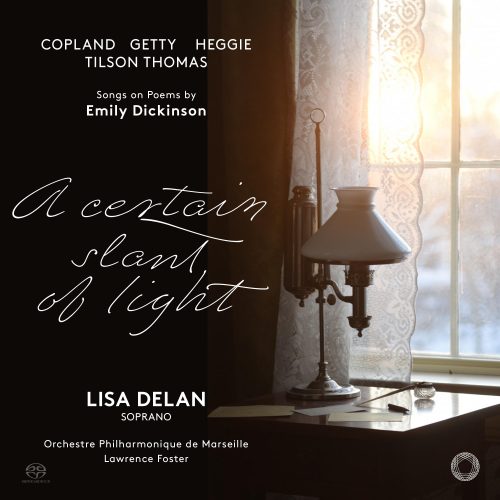
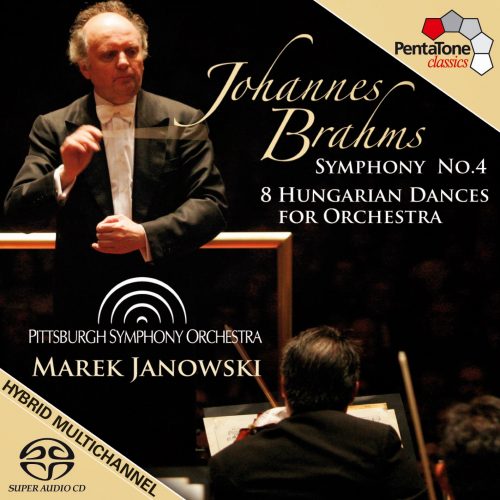
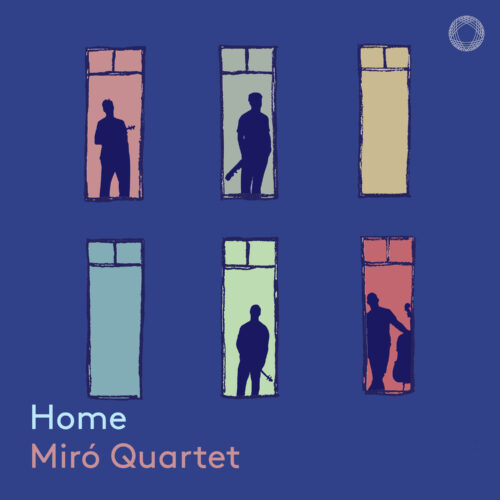
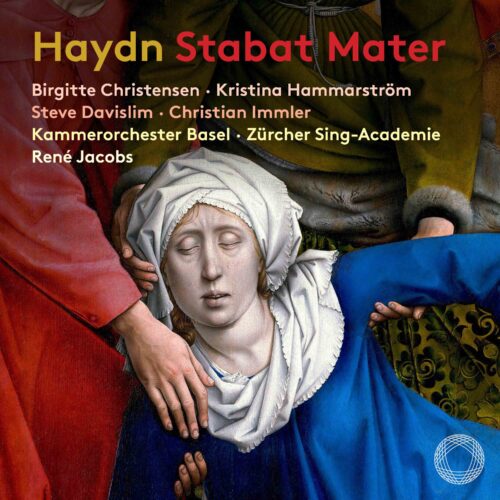
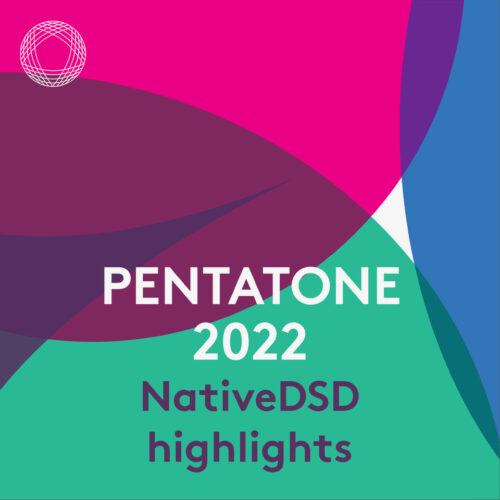
Reviews
There are no reviews yet.